ASTAWOL PROJECT
Professor Alexander Yaw Debrah is a renowned research scientist conducting research in lymphatic filariasis and onchocerciasis, which are among the neglected tropical diseases (NTDs) recognized by the World Health Organisation (WHO). These NTDs are also referred to as poverty-related diseases (PRDs), since they mainly afflict the poor in affected countries. Professor Alexander Yaw Debrah was successful in his application for a senior fellowship funded by the EDCTP. This project is aimed at providing alternative treatment strategies using anti-wolbachial drugs to accelerate the elimination of onchocerciasis and lymphatic filariasis hence the acronym ASTAWOL. In this project, he is conducting high-quality clinical trials in both lymphatic filariasis (LF) and onchocerchiasis.
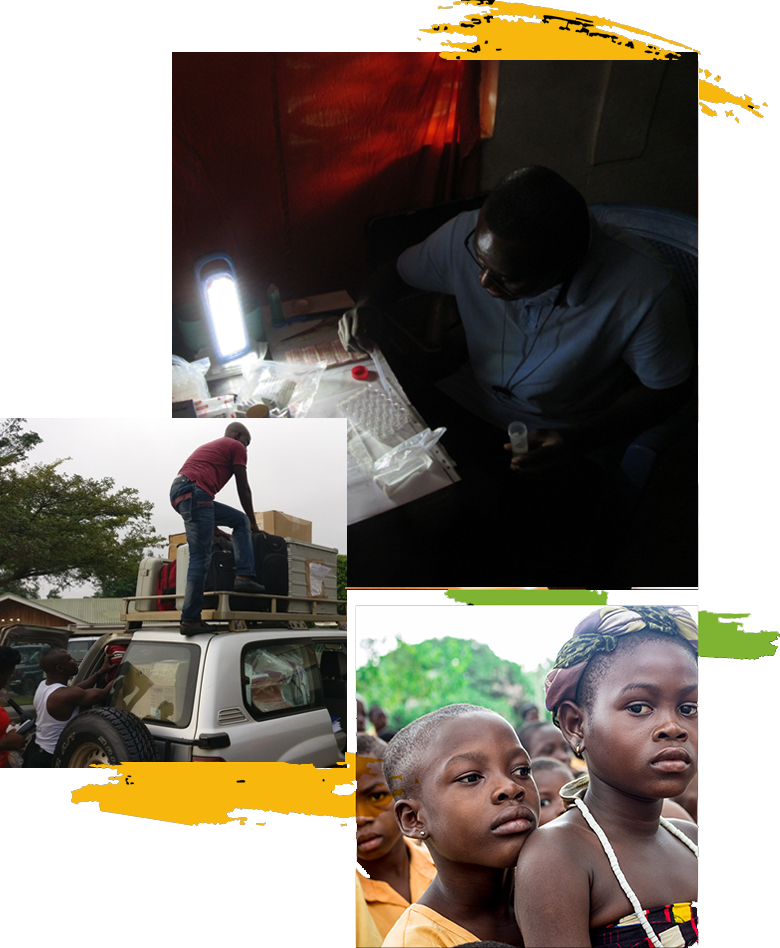
PROTOCOL TRAINING
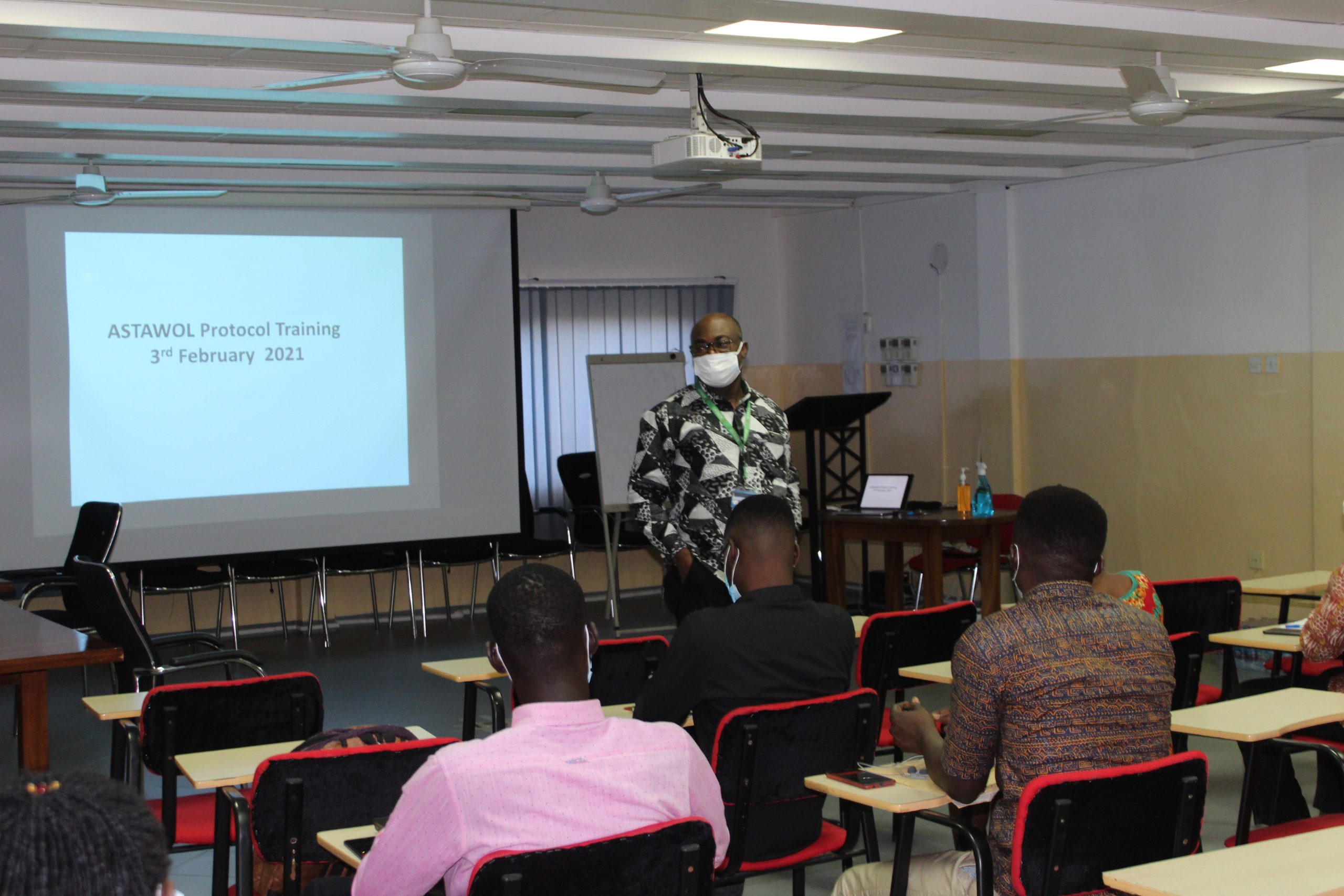
Professor Alexander Yaw Debrah, EDCTP Senior Research Fellow and the Principal Investigator for the ASTAWOL study, taking the research team through the ASTAWOL protocol to equip them for the task ahead.
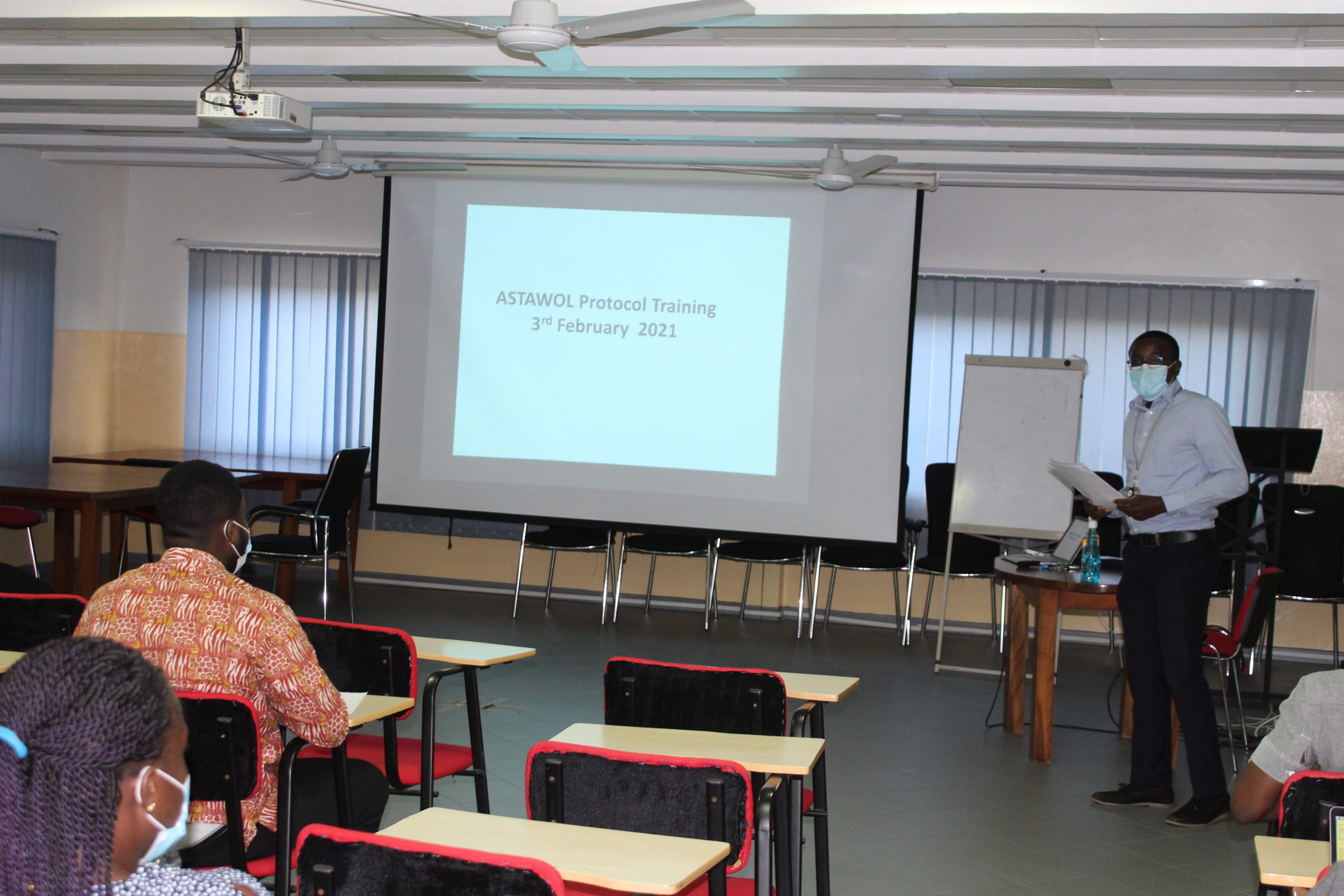
Dr Jubin Osei-Mensah, the Project Manager for the Filariasis project, taking the research team through the various Standard Operating Procedures (SOPs) to be followed when carrying out the ASTAWOL study. These SOPs when followed will ensure reproducibility of the findings that will come out from this study.
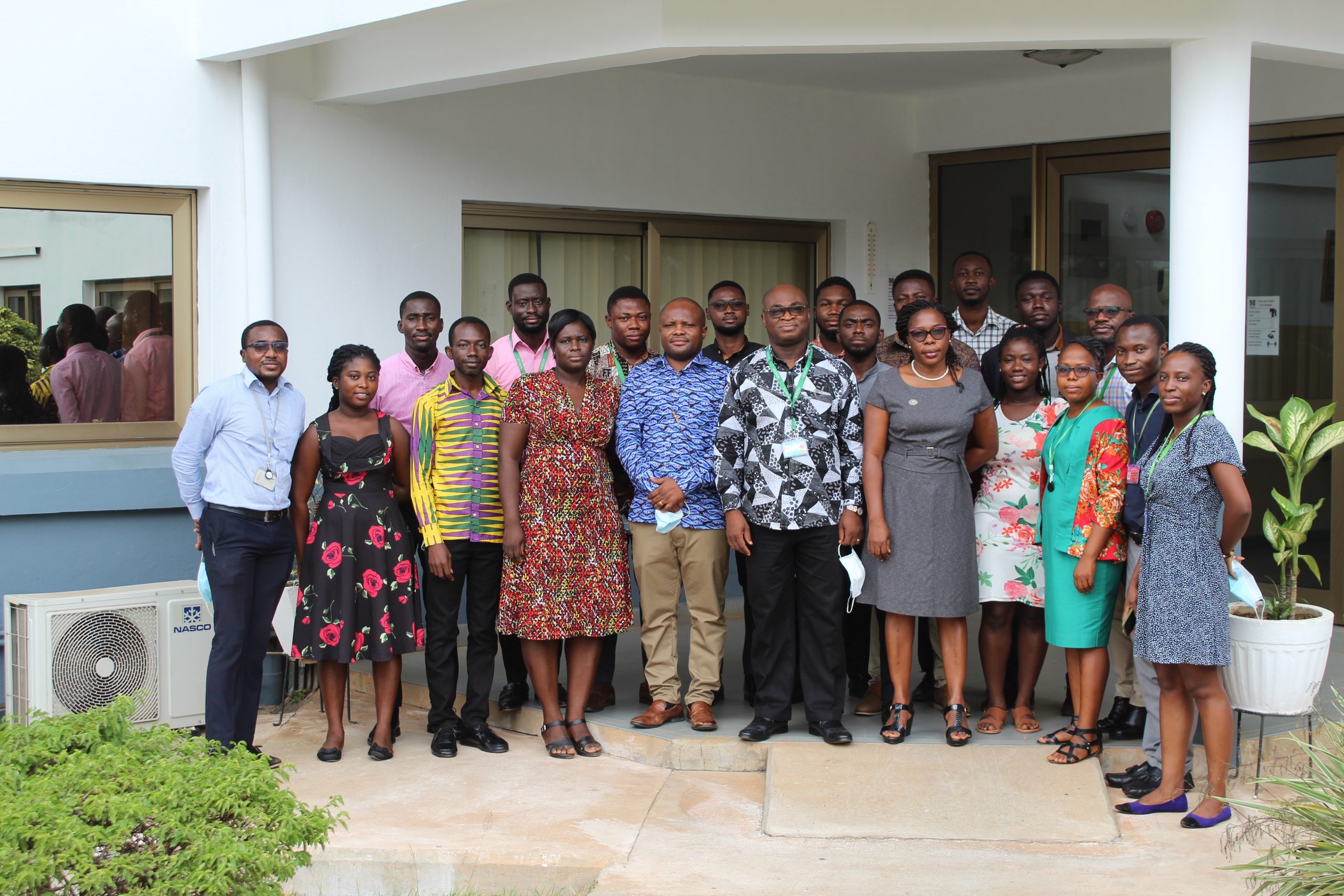
Group picture of the research team after the ASTAWOL protocol training on 3rd February, 2021 held at Kumasi Center for Collaborative Research in Tropical Medicine (KCCR). This team headed by Professor Alexander Yaw Debrah is now poised to execute the duties necessary to accomplish the goals and aspirations of the study.
OUR ACTIVITIES

Packing at KCCR for field activities
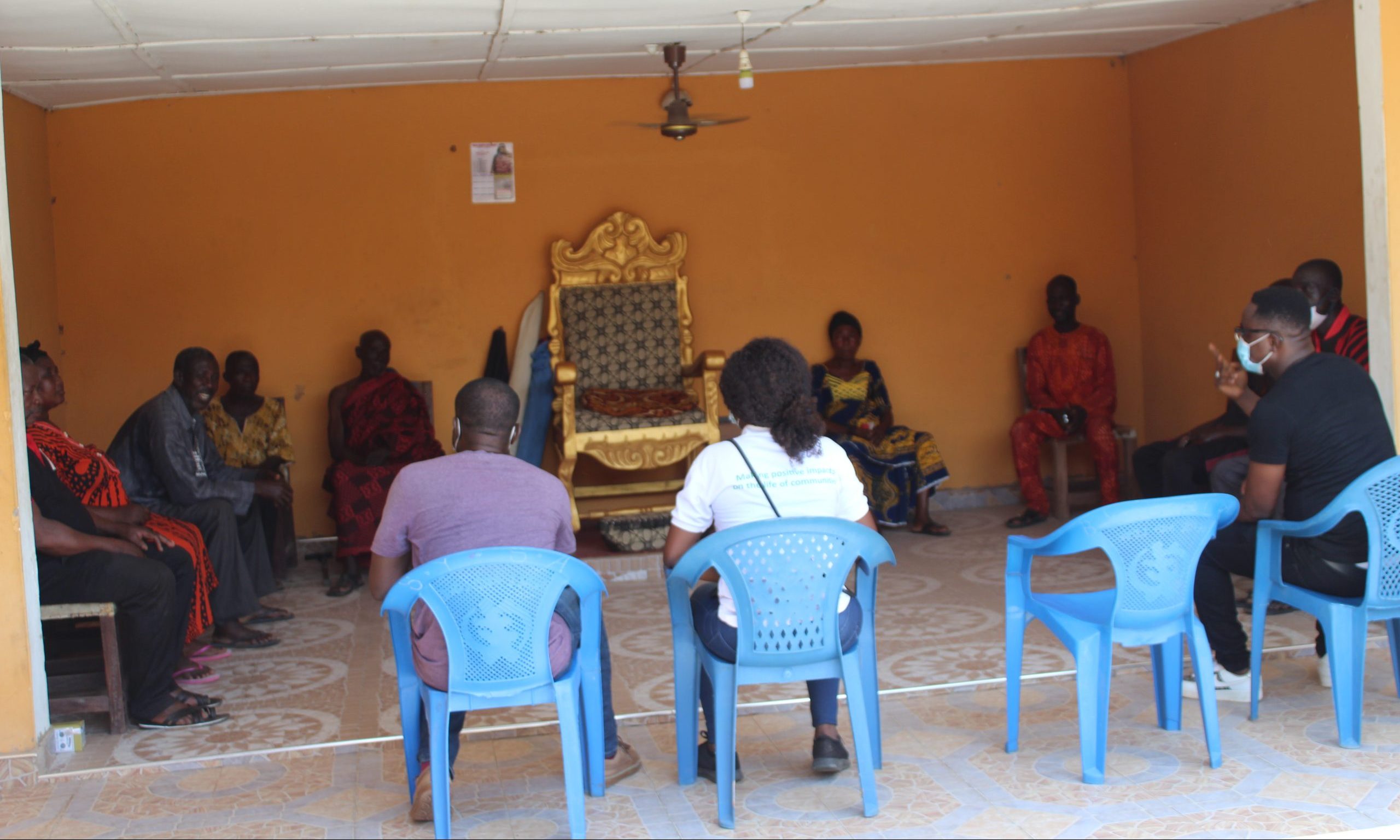
Meeting with the opinion leaders of a community for their consent and approval before survey is scheduled
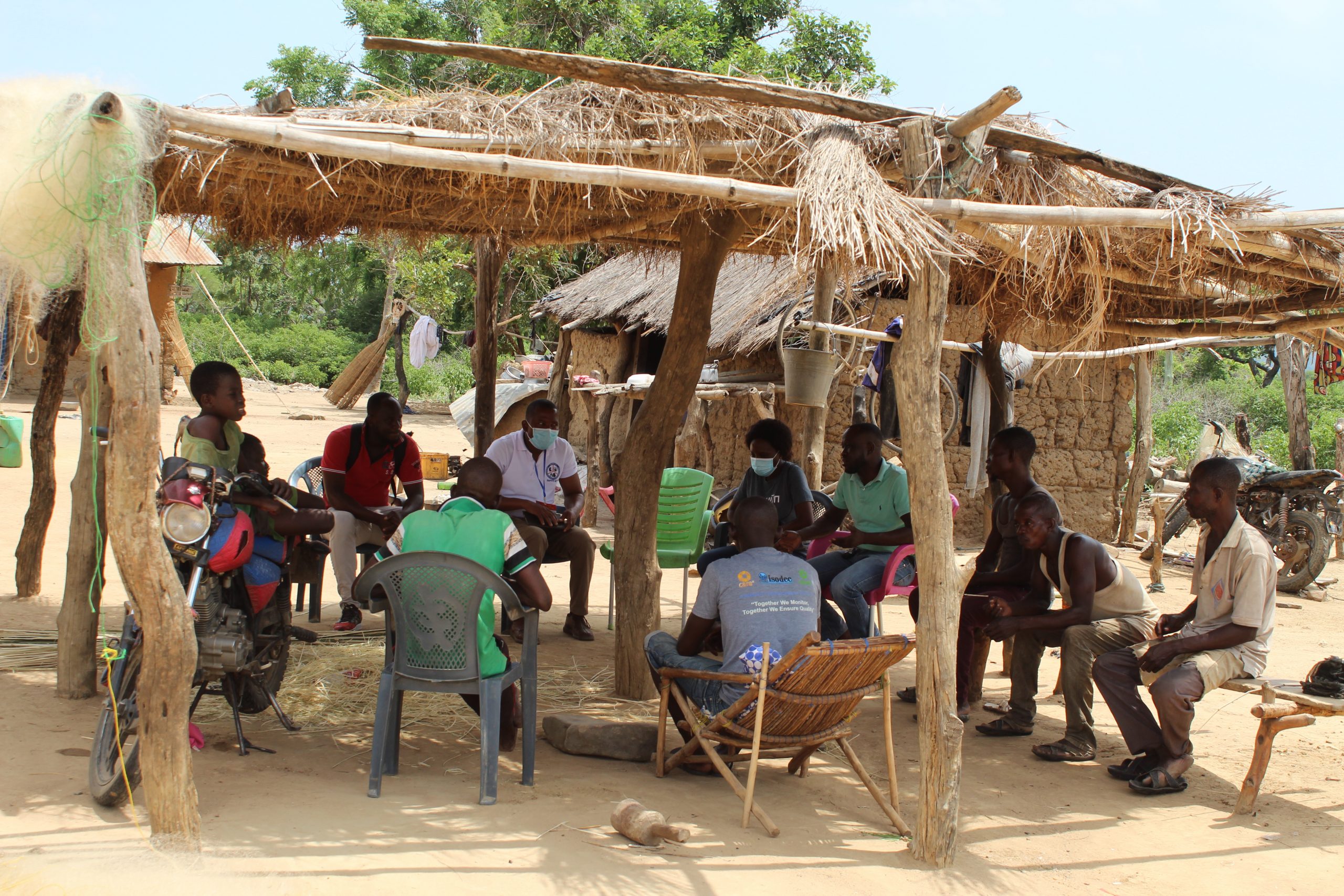
Meeting with the opinion leaders of a community for their consent and approval before survey is scheduled
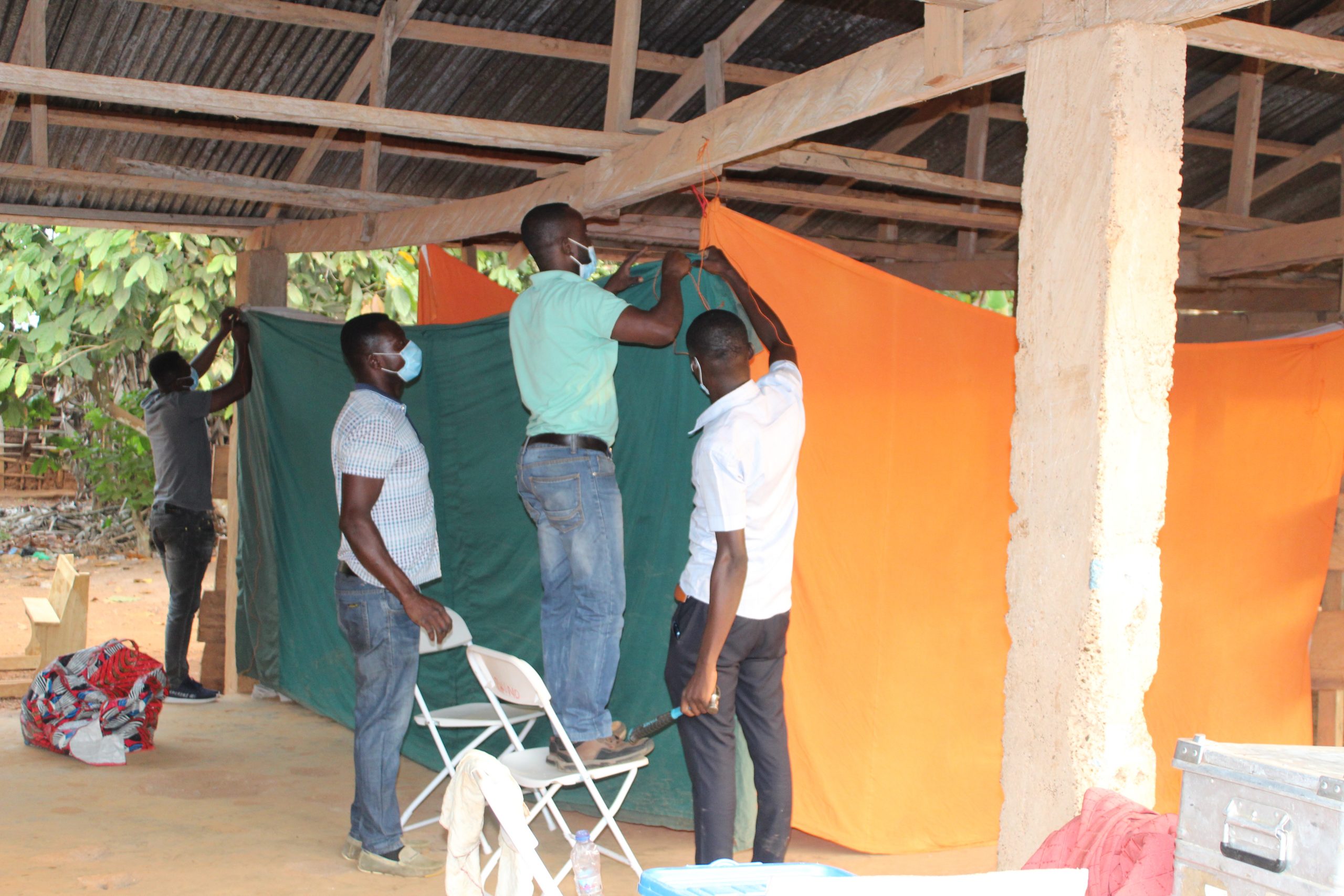
Constructing tent on the field to ensure participant privacy and confidentiality during palpation for onchocercal nodules and skin sipping
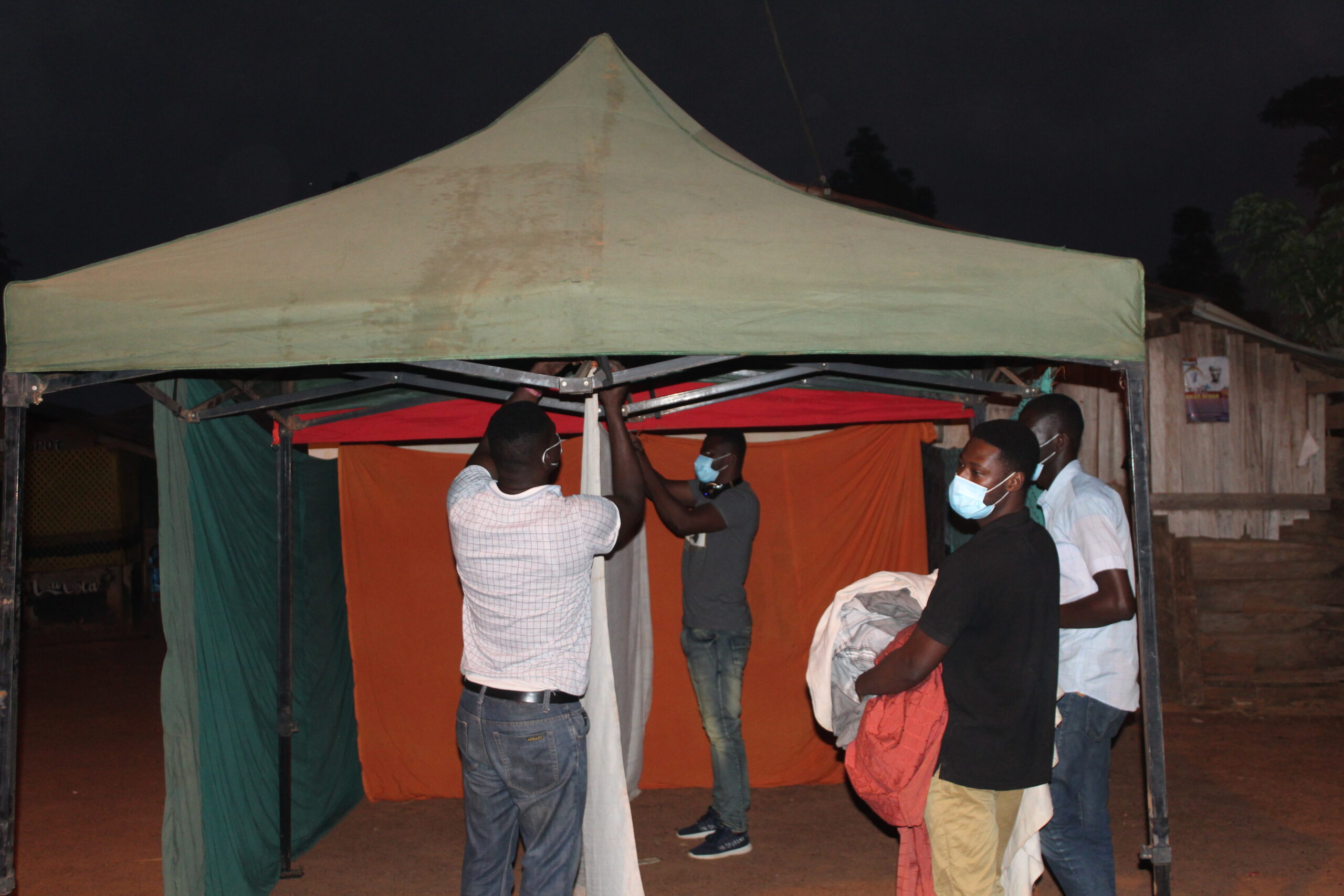
Constructing tent on the field to ensure participant privacy and confidentiality during palpation for onchocercal nodules and skin sipping
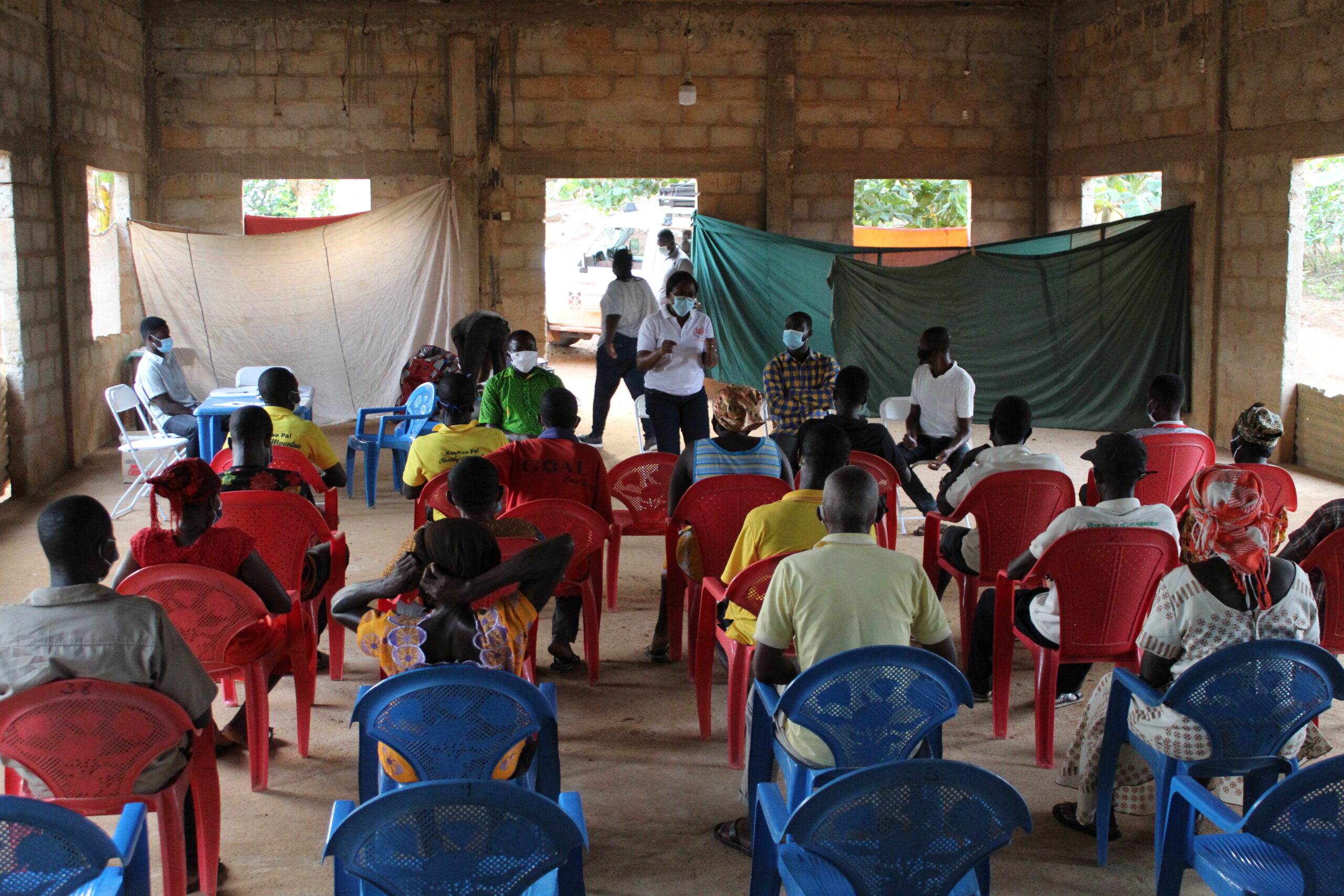
Explaining research procedures to potential study participants. This helps these individuals to make informed decision as to whether or not they will want to take part in the study.
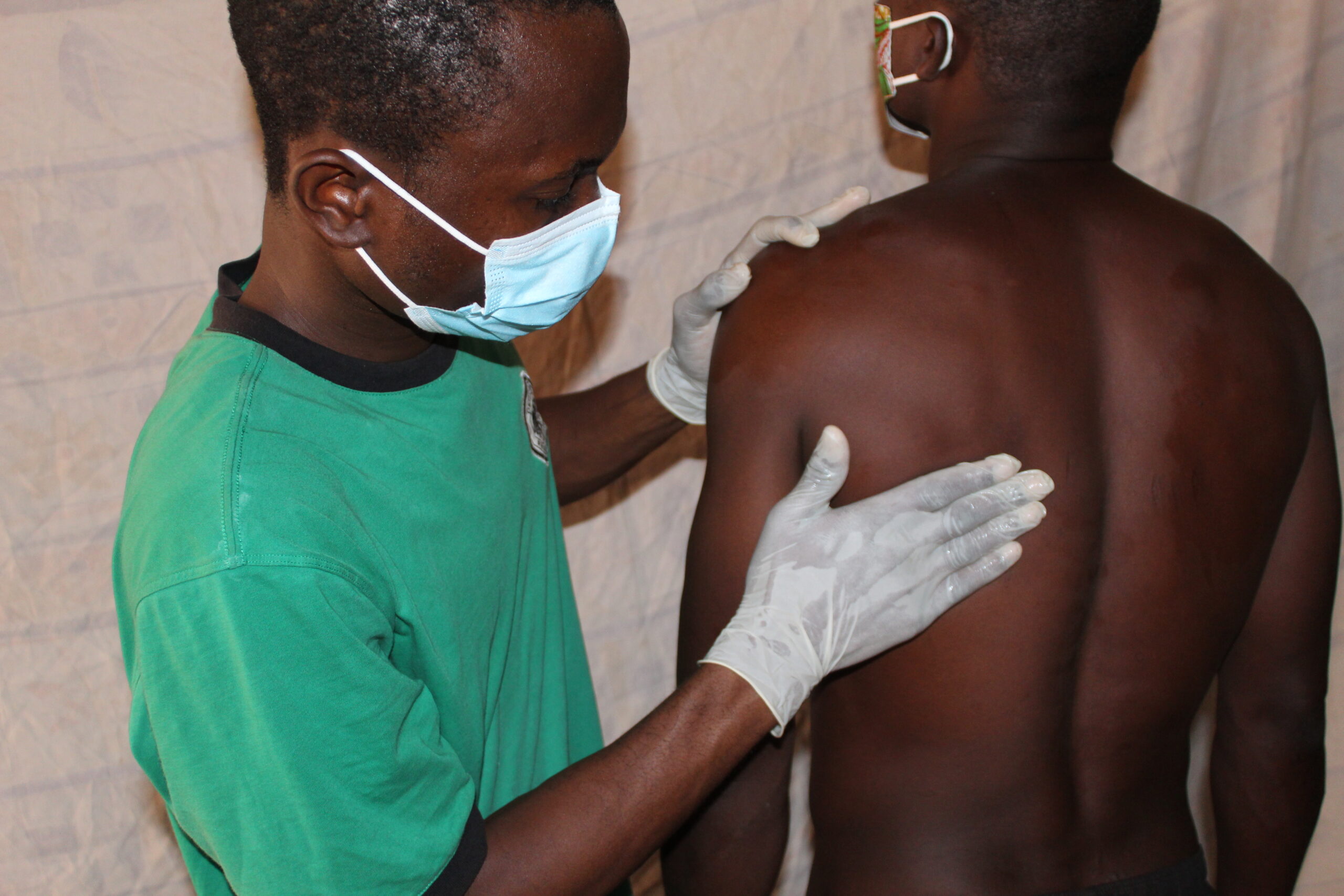
Picture showing the process of palpation for onchocercal nodules
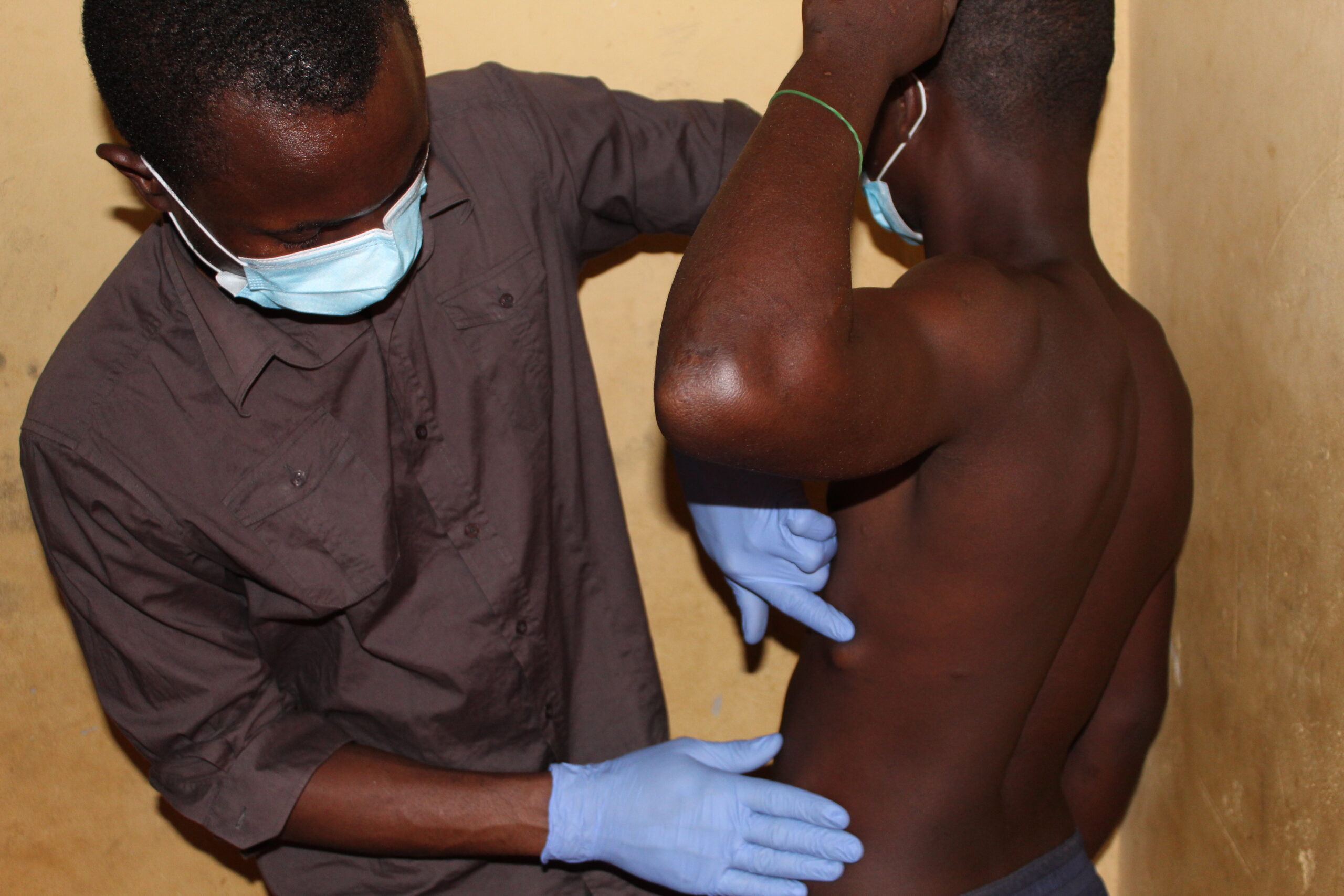
Study participant with onchocercal nodule on the lateral part of the left ribs
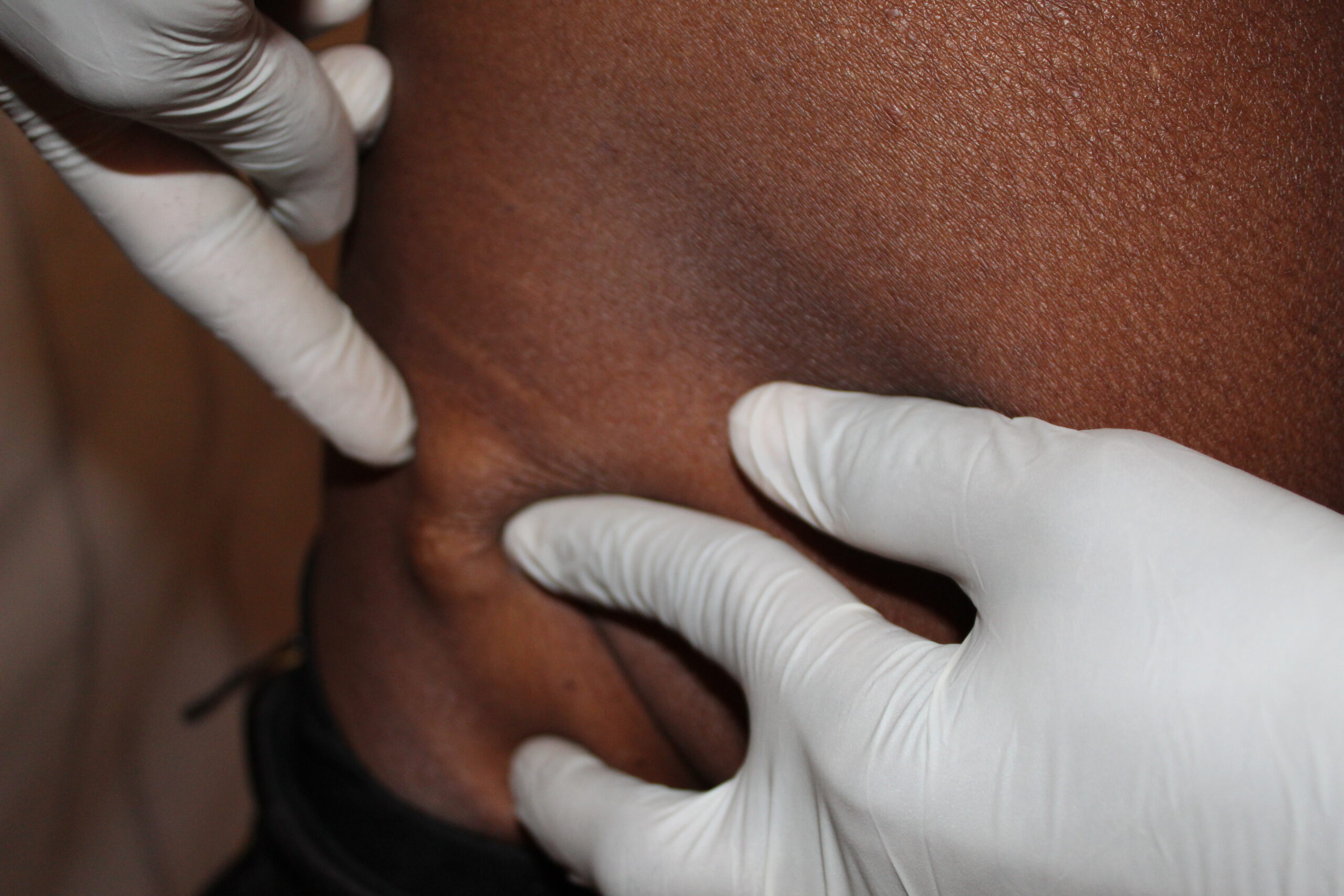
Study participant with two onchocercal nodules on the left trochanter
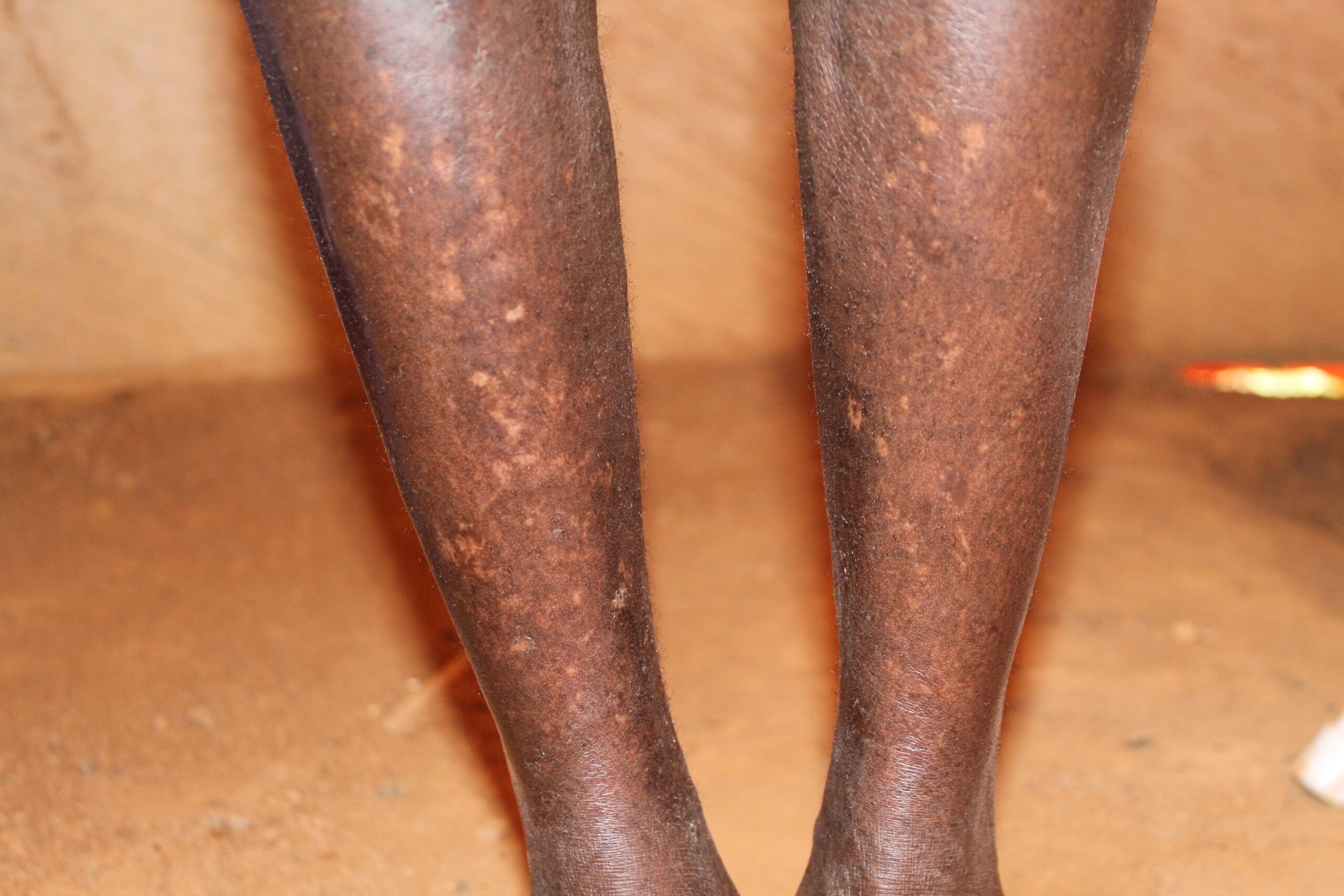
A study participant with leopard skin (depigmentation of the skin) around the shin region of the legs
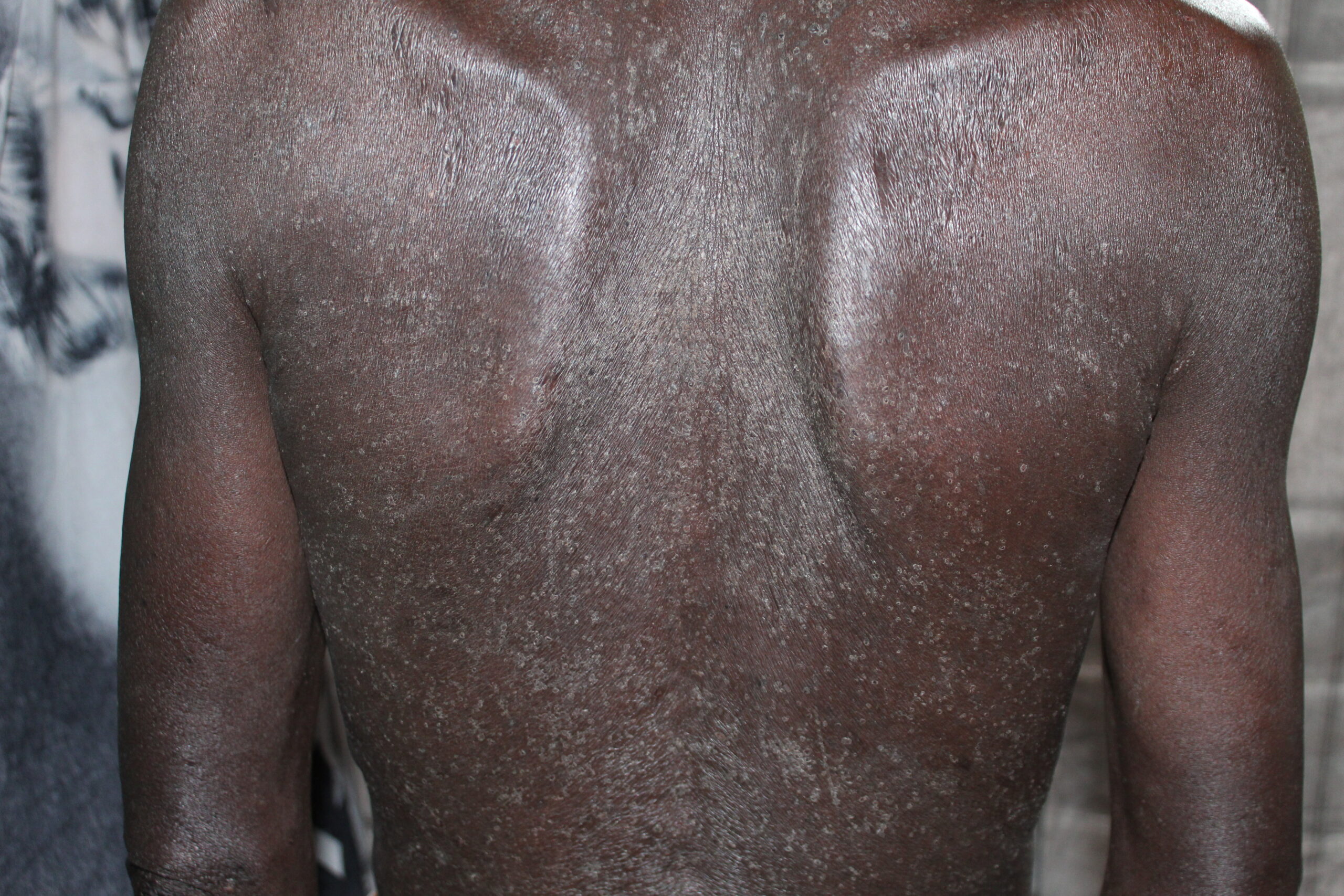
Study participant with chronic papular onchodermatitis
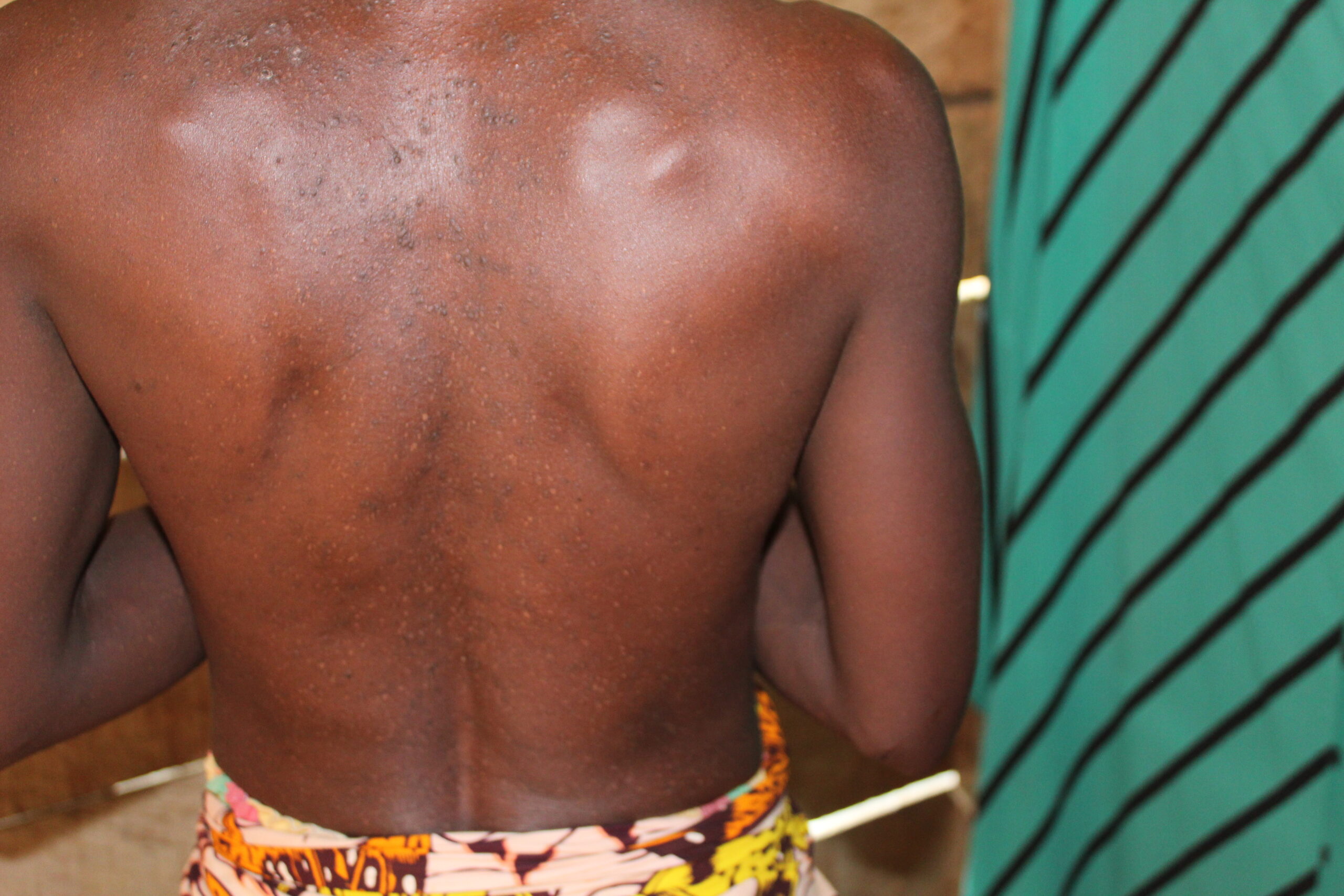
Study participant with chronic papular onchodermatitis
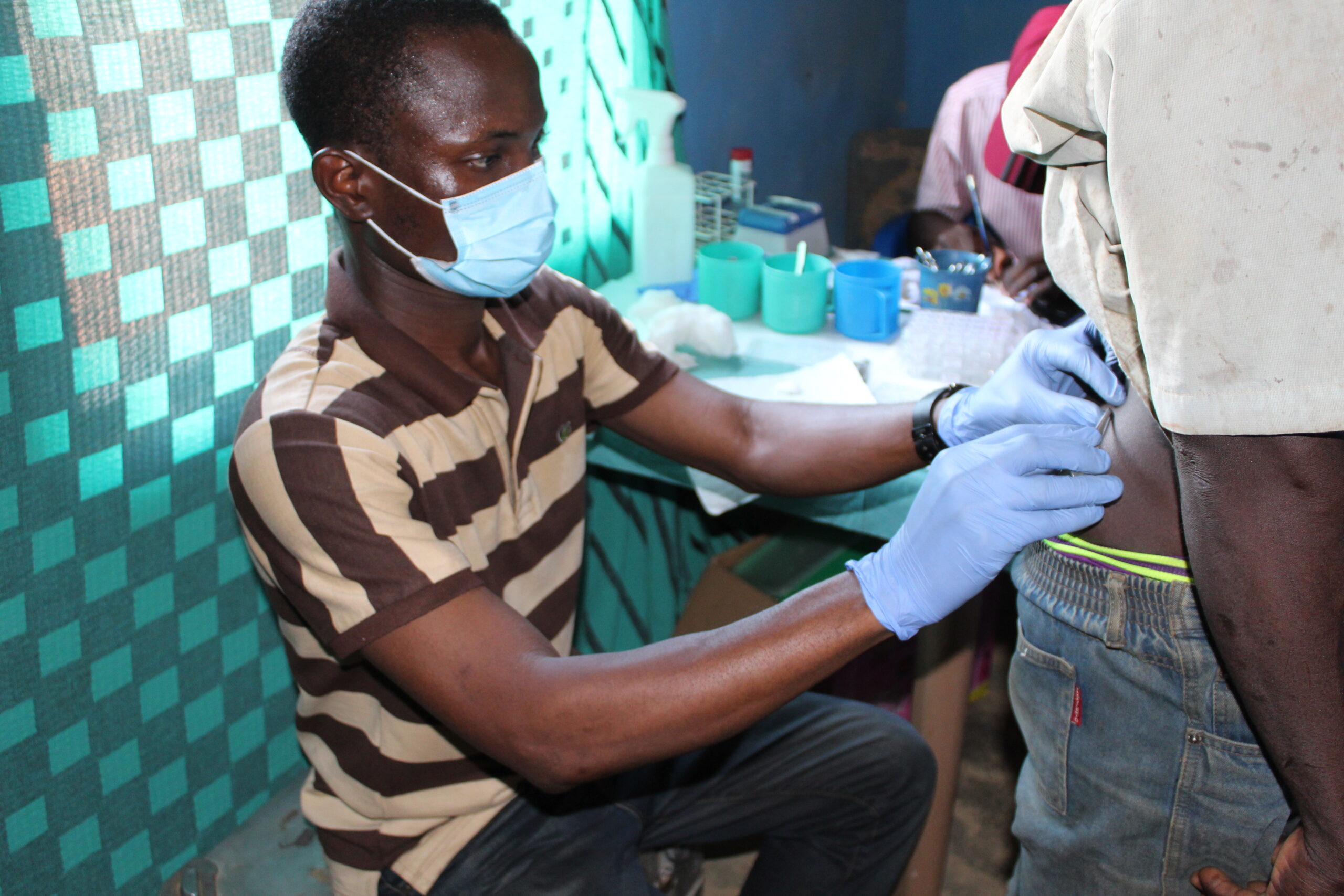
Snipping a nodule positive person on the iliac crest to be examined microscopically for the baby worms (microfilariae) of Onchocerca volvulus. This process is carried out in an enclosed area to ensure participant privacy and confidentiality.
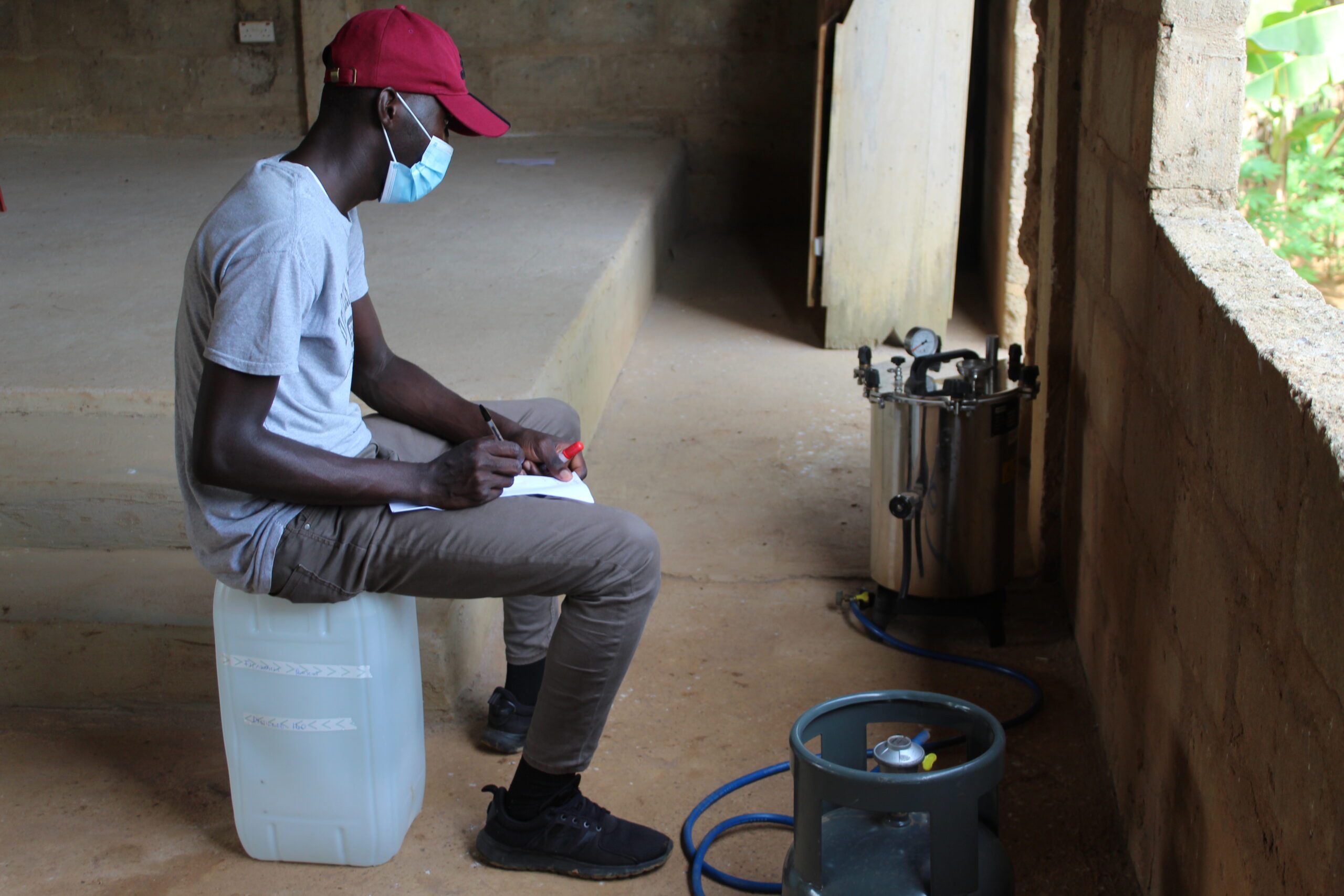
Autoclaving on the field to ensure complete sterilization of the skin snipping instruments before and after taking the skin biopsies
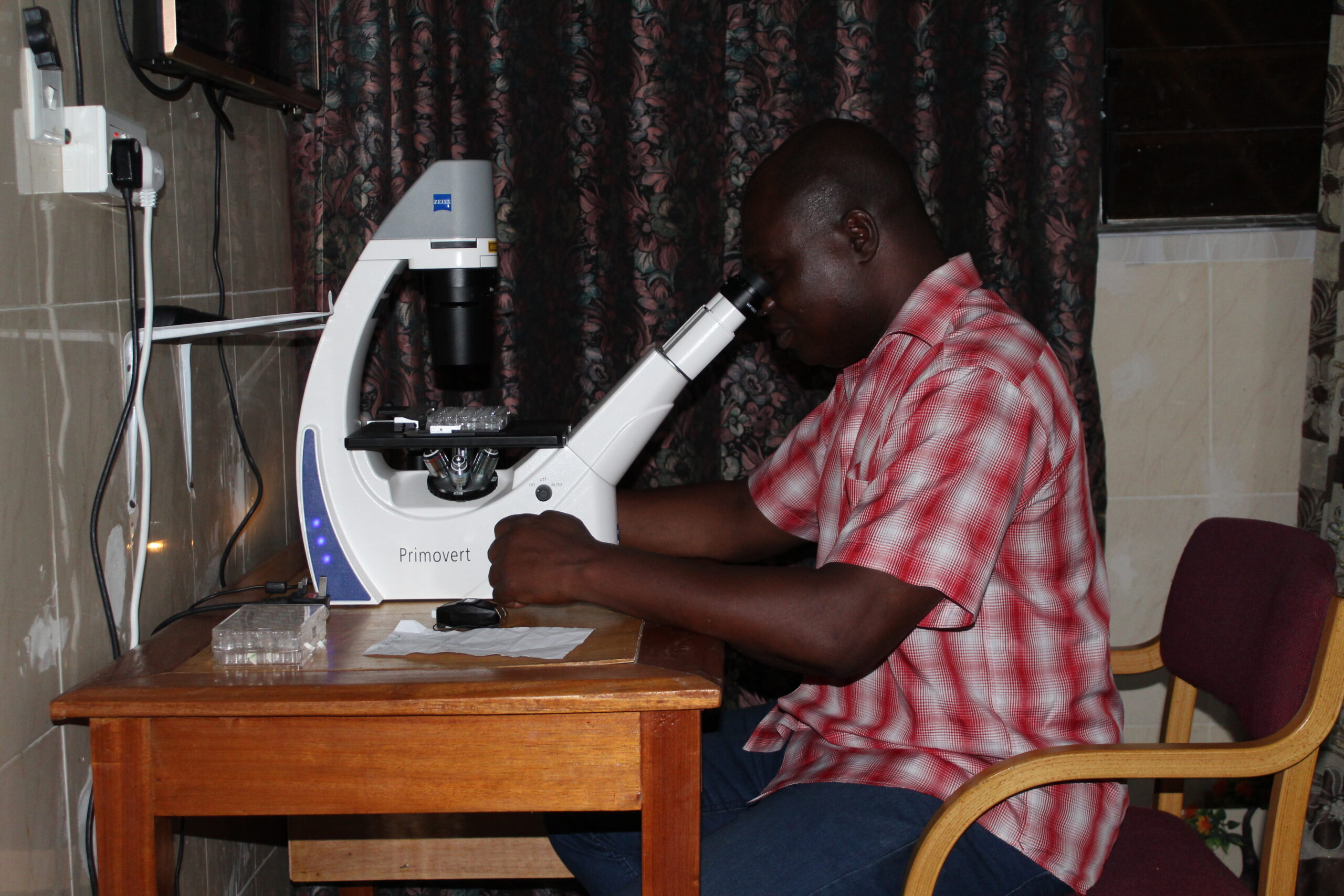
Microscopic examination of the skin biopsies for the baby worms (microfilariae) of Onchocerca volvulus 24 hours after the skin snipping
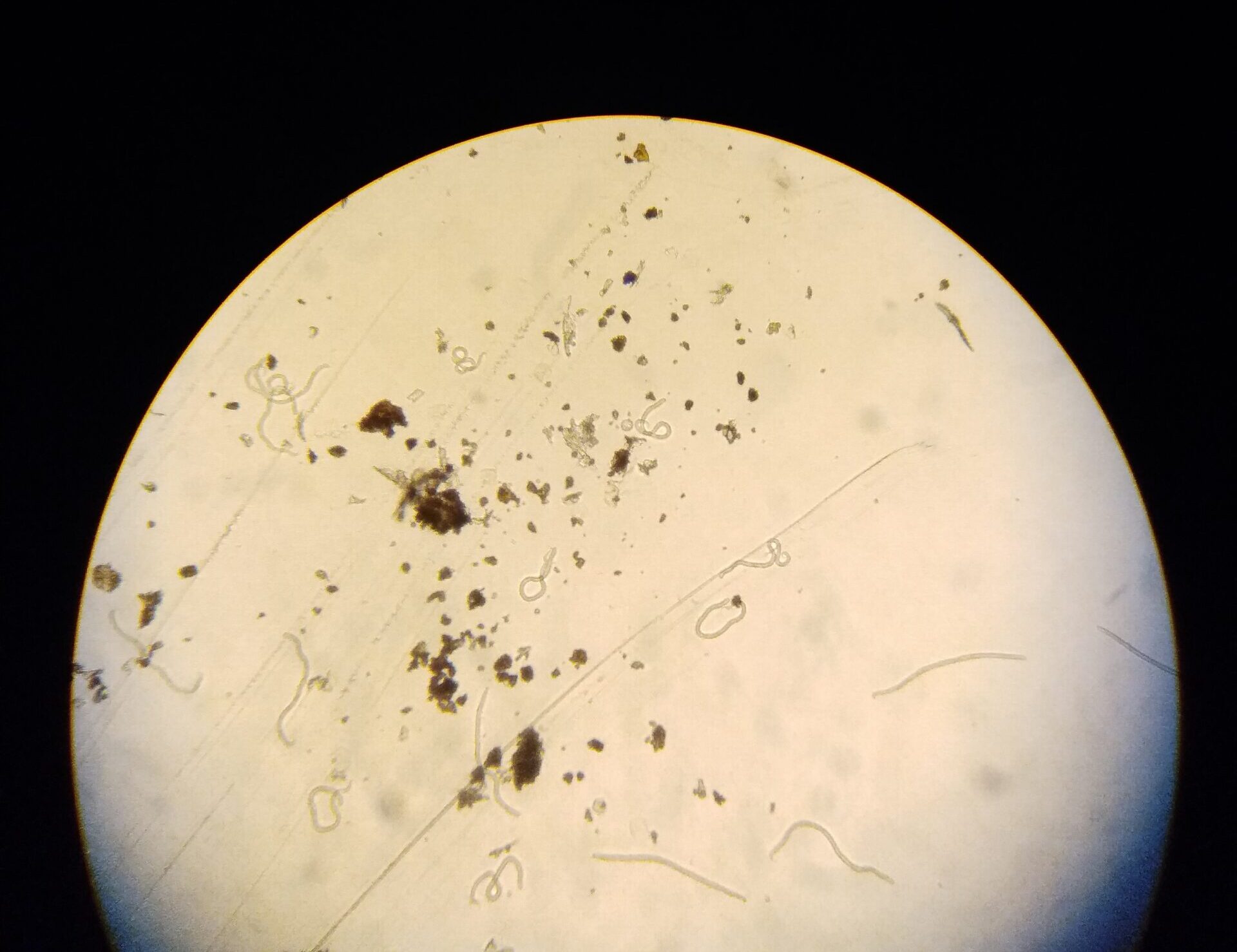
Baby worms (microfilariae) of Onchocerca volvulus under the inverted microscope
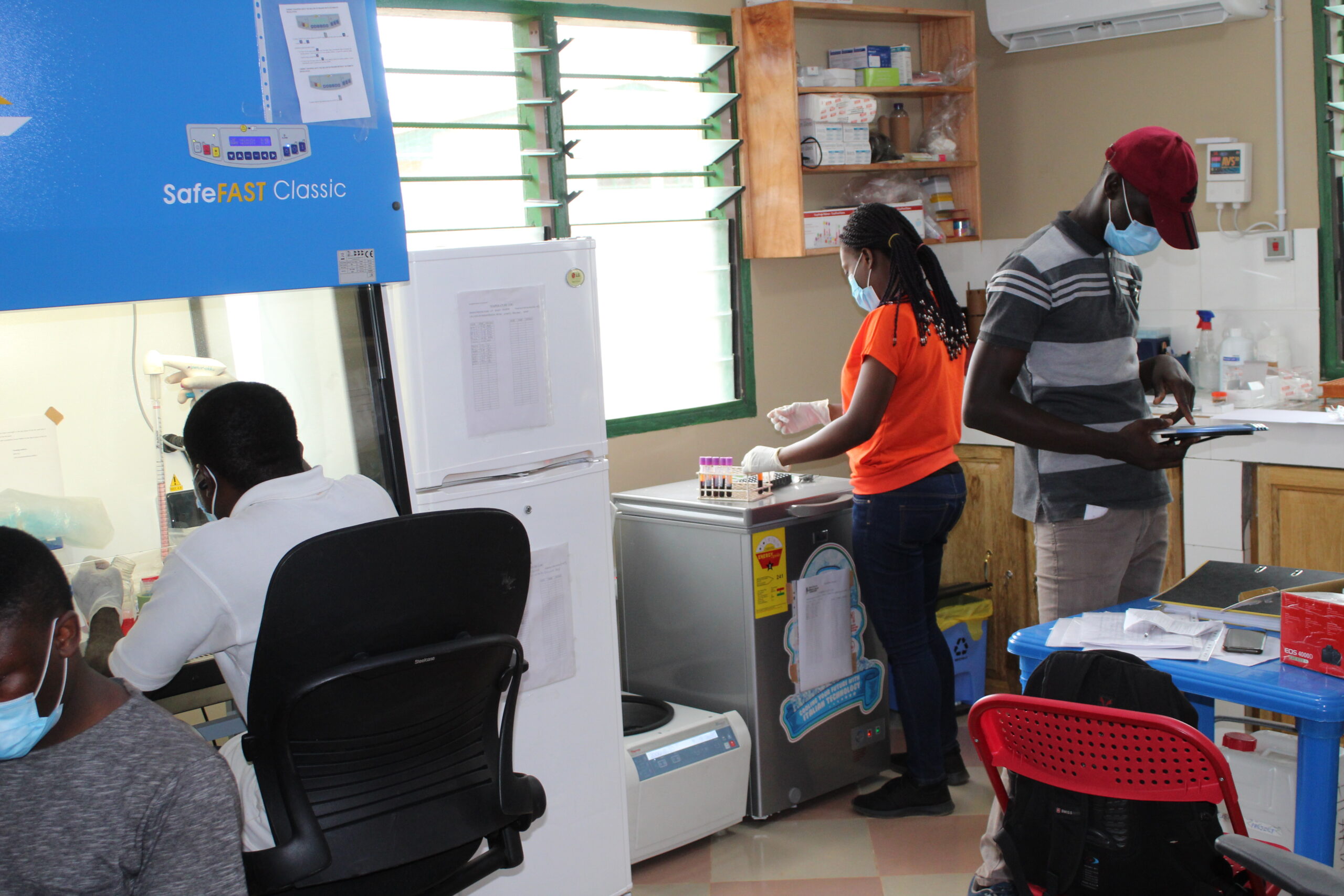
Research team members processing the participants’ samples in the field research laboratory
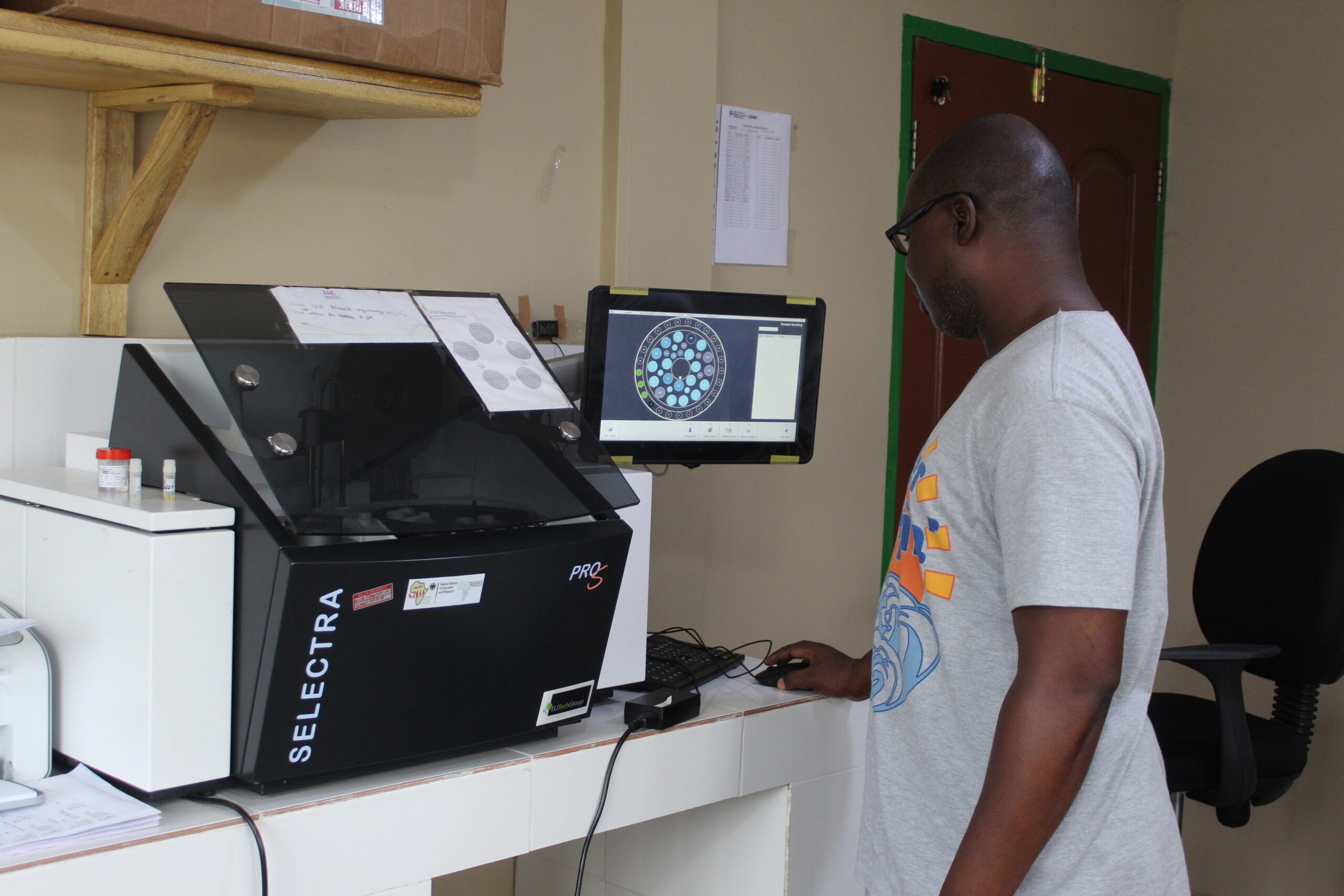
Research team members processing the participants’ samples in the field research laboratory
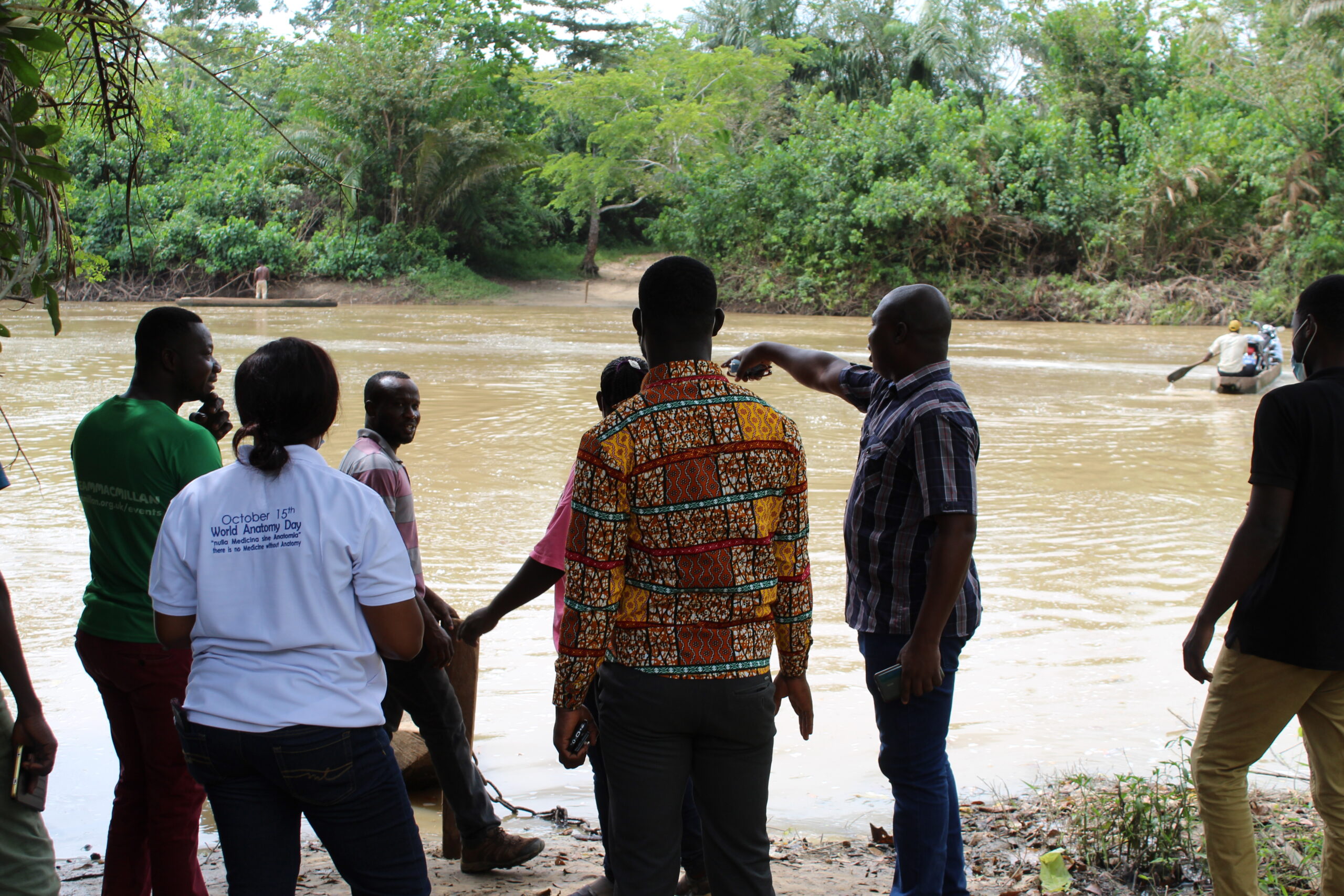
The Research team visited Tano River in one of their field activities. This river is known to be a breeding site for the vectors (Simulium blackflies) which cause onchocerciasis

Fast-flowing River Tano provides suitable conditions for the breeding of vectors (Simulium blackflies) which cause onchocerciasis.
SOME CHALLENGES ENCOUNTERED DURING THE FIELD ACTIVITIES
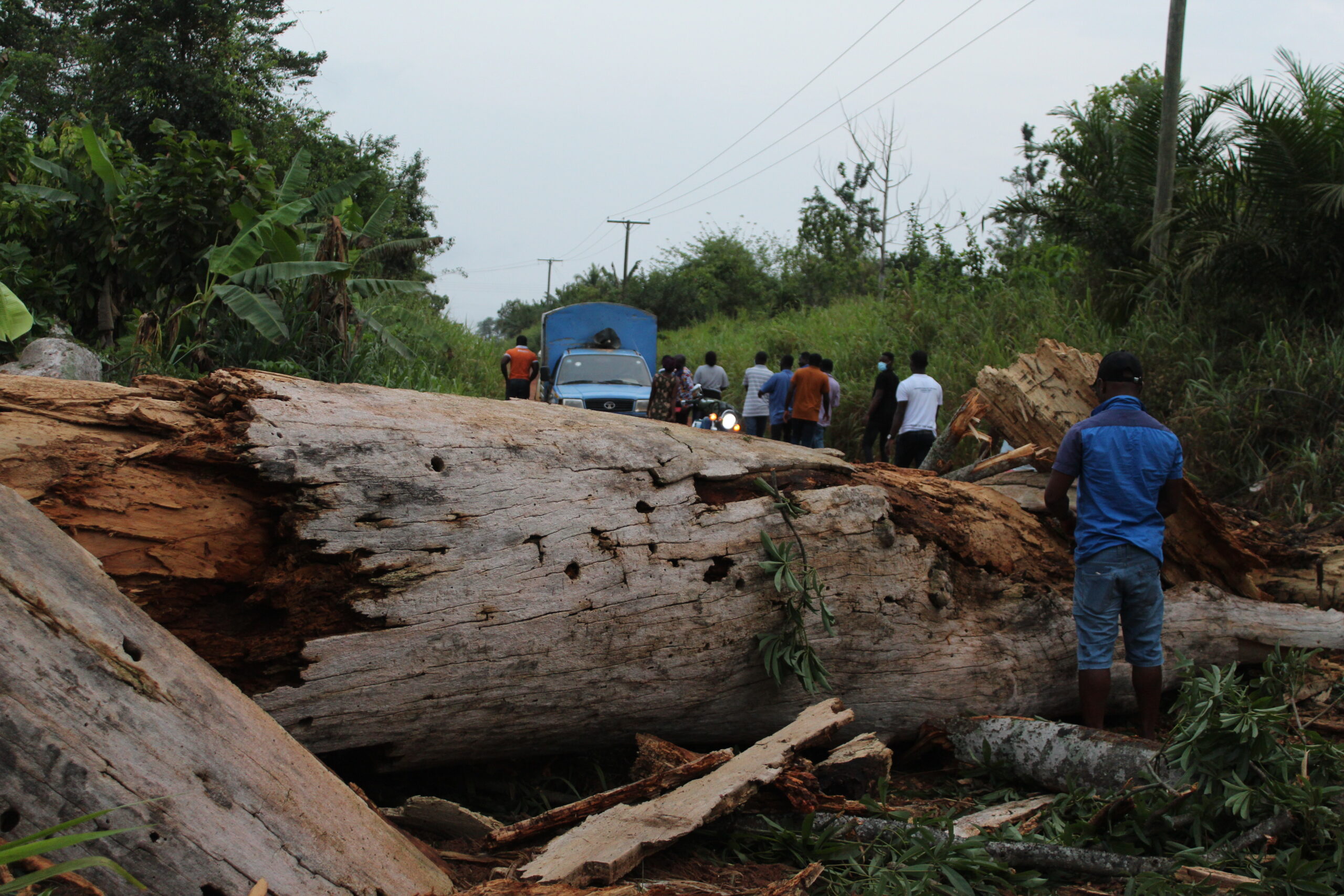
Fallen timber blocks the road. Research team left in a difficult situation.
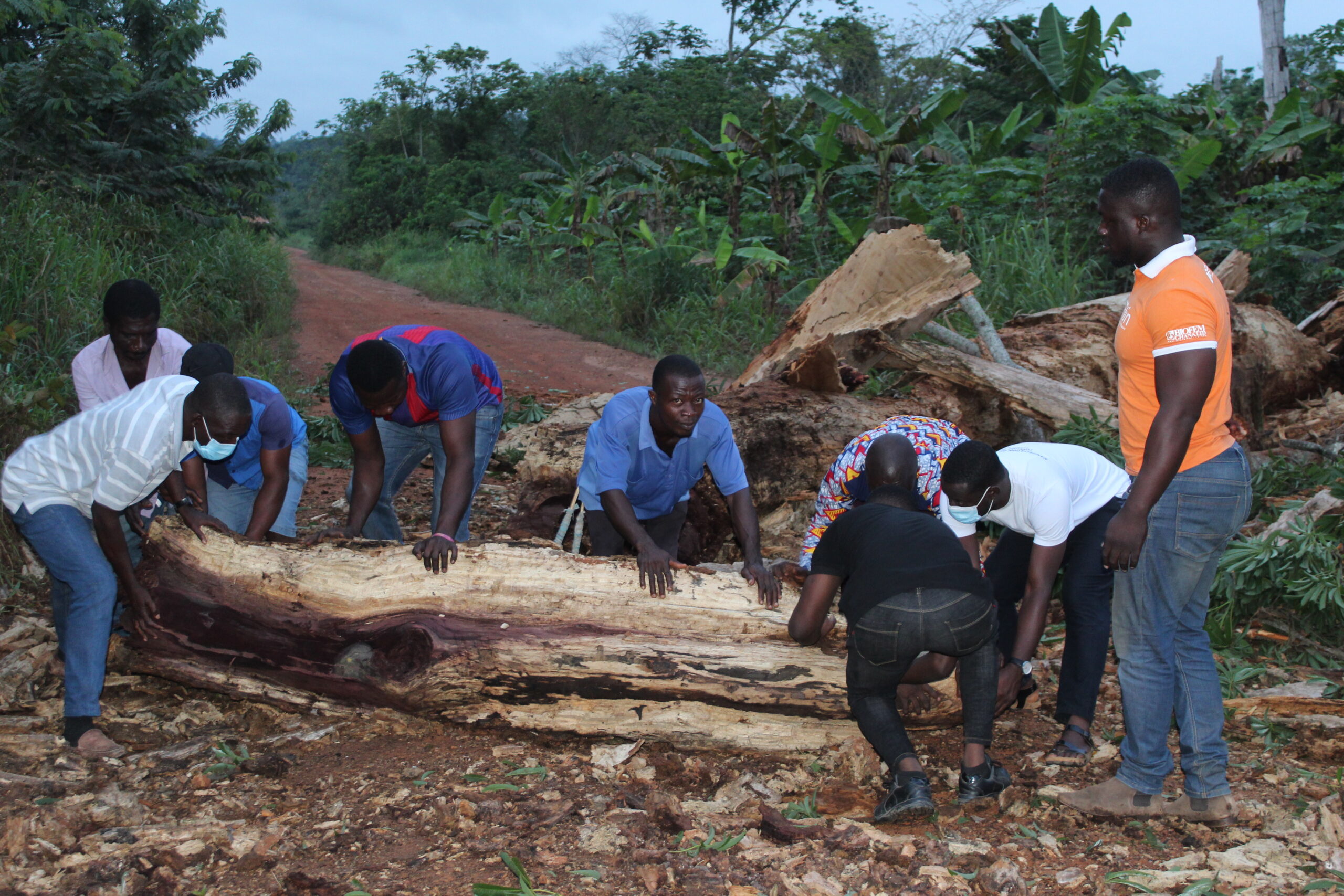
Fallen timber blocks the road. Research team left in a difficult situation.
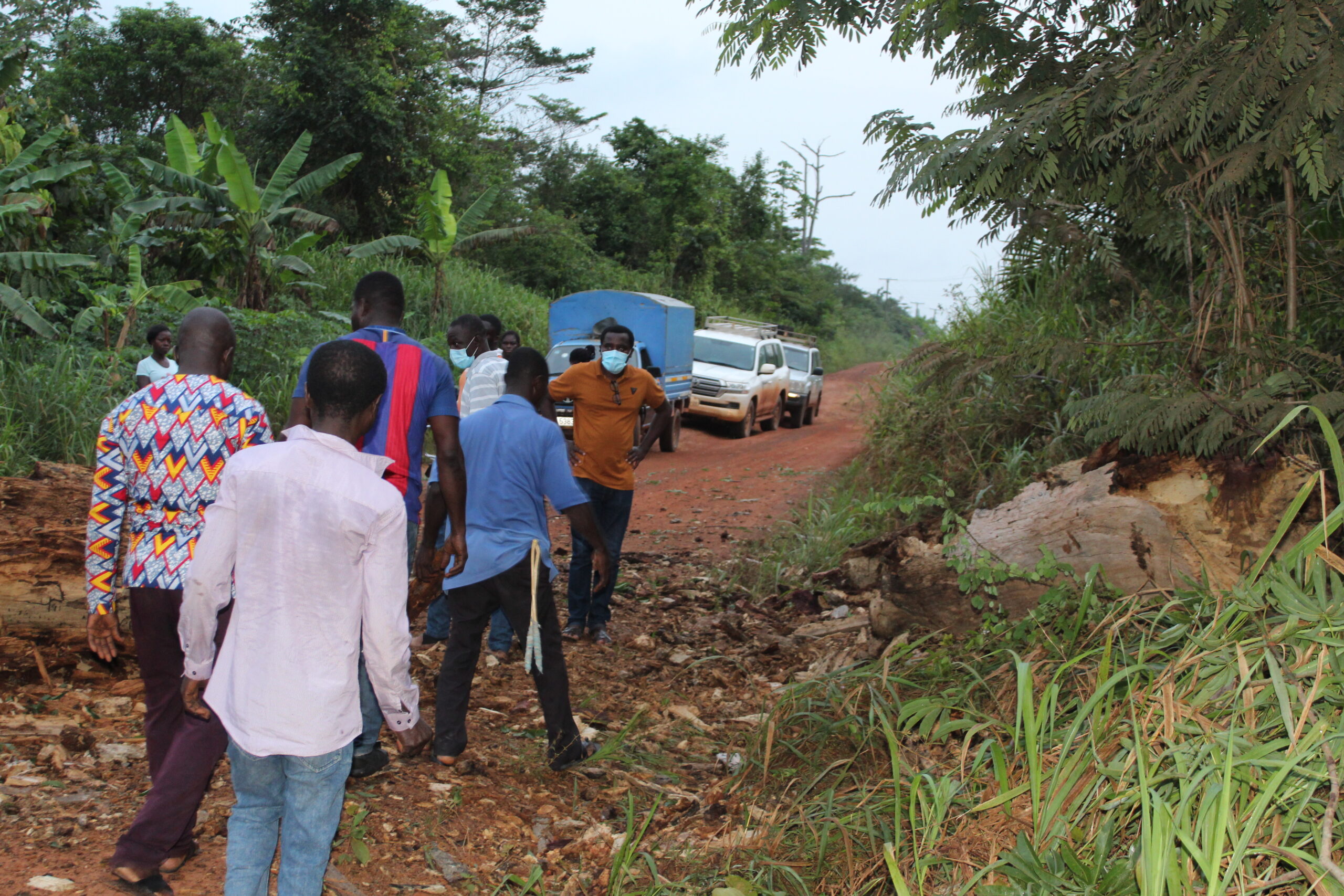
Road cleared for the research team to continue their journey to the study communities